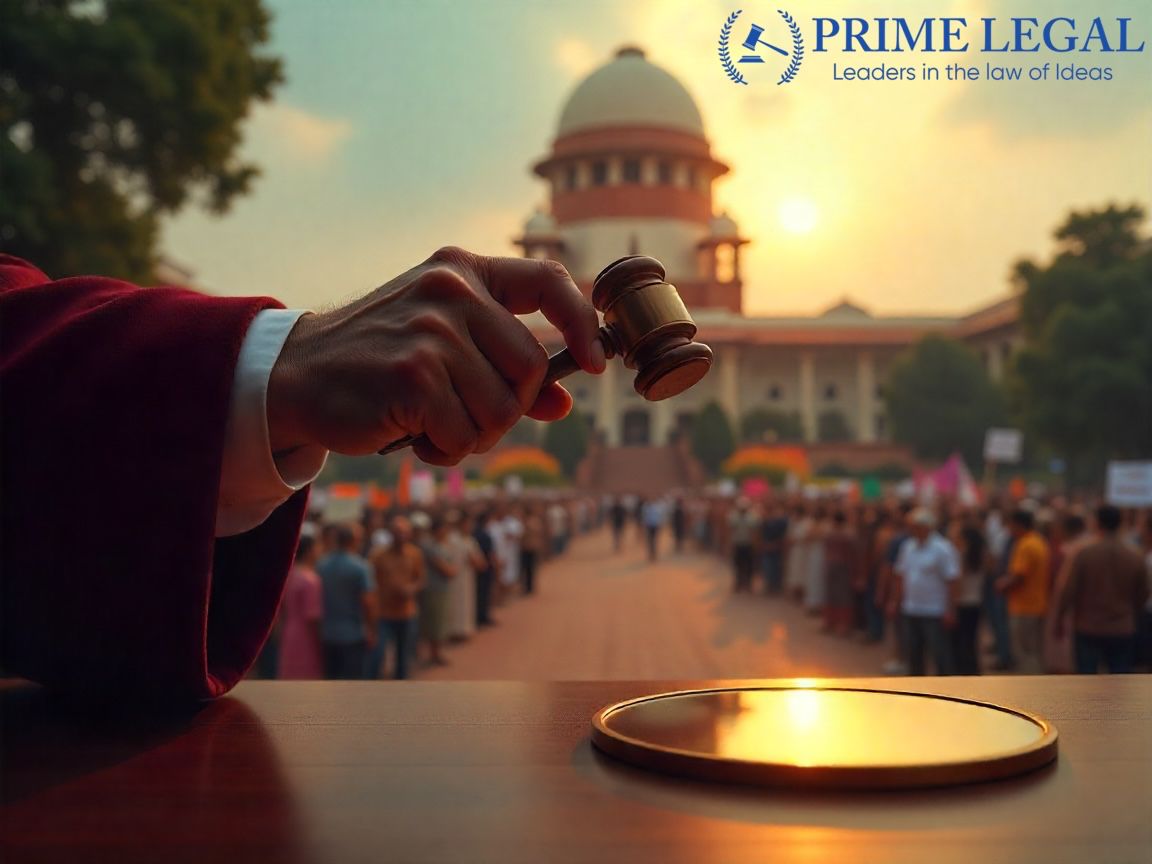INTRODUCTION
On 15 September 2025, the Supreme Court refused to entertain a petition that sought to cover registered political parties under the Sexual Harassment of Women at Workplace (Prevention, Prohibition and Redressal) Act, 2013 (POSH Act). A bench consisting of Chief Justice B.R. Gavai, Justices K. Vinod Chandran, and A.S. Chandurkar in Yogamaya M.G. v. State of Kerala & Ors. Diary No. 47381/2025 said that, when a person joined a political party, it was not considered as an employment situation and that if the POSH overpower were extended to political parties it could possibly lead to the risk of misuse and blackmail. The Court essentially endorsed the Kerala High Court’s reasoning that parties were not required by statute to establish Internal Complaints Committees (ICCs), as there was no employer–employee relationship between them in these situations.
BACKGROUND
The POSH Act applies the Vishaka principles and provides an existing statutory procedure (ICCs, mechanism for handling complaints, interim relief, etc.) for preventing and responding to workplace sexual harassment. Since the POSH Act came into effect, Courts and Tribunals have debated the scope of the Act and whether it applies to more informal workplaces — film units; occupations of freelanced and gig workers; universities; and similar settings. Notably, in 2022, the Kerala High Court determined that political parties, which are associations of voluntary members rather than employers of workers or staff, are not “workplaces” in any strict sense, nor are political parties routinely obligated to set up ICCs. The petition before the Supreme Court appealed that narrow interpretation of workplace under the POSH Act.
FACTS
The Special Leave Petition (which was championed by advocate Yogamaya M.G.) challenged the Kerala High Court ruling. The petitioners argued that the definitions of “aggrieved woman,” “workplace” and “employer” are intentionally broad and purposive under the POSH Act, designed to protect women, whether or not they are bound by any formal employment contract. The petitioner requested the Court determine whether political parties and organized entities like them should be treated as workplaces for POSH purposes, or, at minimum, persuade a sectoral mechanism/ICCs to adjudicate complaints of harassment at political life. The State and intervenors contended that political activity is voluntary, any such person is not an employee and to broaden the statute in this manner is a matter of legislative policy.
KEY TAKEAWAYS
1. Membership ≠ Employment (The Core Holding).
The Court recognized that persons who become members of political parties do so voluntarily and typically are not compensated by any sort of payrol; for this reason, the statutory employer–employee framework the POSH Act has envisioned, sections like 2(g) and 4, does not topically apply to political parties.
2. Risk of Misuse – “Pandora’s box.”
The bench expressed that exposing political parties to POSH could be weaponized for blackmail or sabotage in high-stakes political environments – a policy, and practical concern, that contributed to its decision to deny the petition outside of the subject.
3. Procedural Posture — Refused to Entertain SLP.
The Supreme Court declined to engage the larger constitutional issue on the merits regarding the coverage of POSH; it declined to entertain the SLP against the Kerala High Court order (thus everything in the High Court order remains unquestioned on the merits, for now). That procedural posture signals caution on behalf of the Courts related to expanding statutory coverage absent a clearer mandate from the legislature.
4. Sectoral Remedies Left to Legislature / Regulators.
The comments of the Court find parallels in past approaches where the Courts have sometimes invited the consideration of legislative or administrative fixes (e.g., ask when regulatory bodies or the Election Commission expresses interest in developing an internal grievance structure), rather than pursue an overall re-formulation of welfare statutes through judicial customization. Even commentators reading the order seem to suggest calls to code voluntarily at the party level or for regulatory guidance from the ECI.
5. Distinction from Other Non-Traditional Workplaces.
The Kerala High Court (and refusal of the Supreme Court to interfere) accepts that not all organised activities, such as film production units which have readily identifiable management, or employers which are registered in some manner, fall outside the scope of POSH obligations — the distinguishing factor remains de facto organisational management and relationships as between employees and employers.
RECENT DEVELOPMENTS
The order comes during an ongoing debate among the public about sexual harassment in political life as well the available institutional remedy for party workers and volunteers. Various news outlets, legal commentators, and women’s groups, have advocated for either legislative changes to expressly include parties, or for some immediate action by the Election Commission to issue guidance and to encourage parties, on a voluntary basis, to adopt ICCs. Meanwhile, the legal reasoning from the Kerala High Court in 2022 remains the applicable legal position unless and until some future SLP is entertained and argued on merit.
CONCLUSION
Yogamaya M.G. v. State of Kerala & Ors. Diary No. 47381/2025 confirms a cautious judicial approach: The POSH Act, as currently constructed and interpreted, does not automatically attach to political parties if there is no employer–employee relationship. For victims in political contexts, this decision is a short-term loss; although it maintains the gap in statutory remedy, it provides both clarity regarding the locus of reform: Parliament, the Election Commission, and the political parties themselves. In practice, parties that would like to demonstrate a commitment to safe workplaces can still voluntarily promote ICCs and transparent grievance procedures; absent that, some legislative or regulatory reform must occur to address the accountability gap.
“PRIME LEGAL is a full-service law firm that has won a National Award and has more
than 20 years of experience in an array of sectors and practice areas. Prime legal falls into the category of best law firm, best lawyer, best family lawyer, best divorce lawyer, best divorce law firm, best criminal lawyer, best criminal law firm, best consumer lawyer, best civil lawyer.”
Written by- Anwesha Anant


